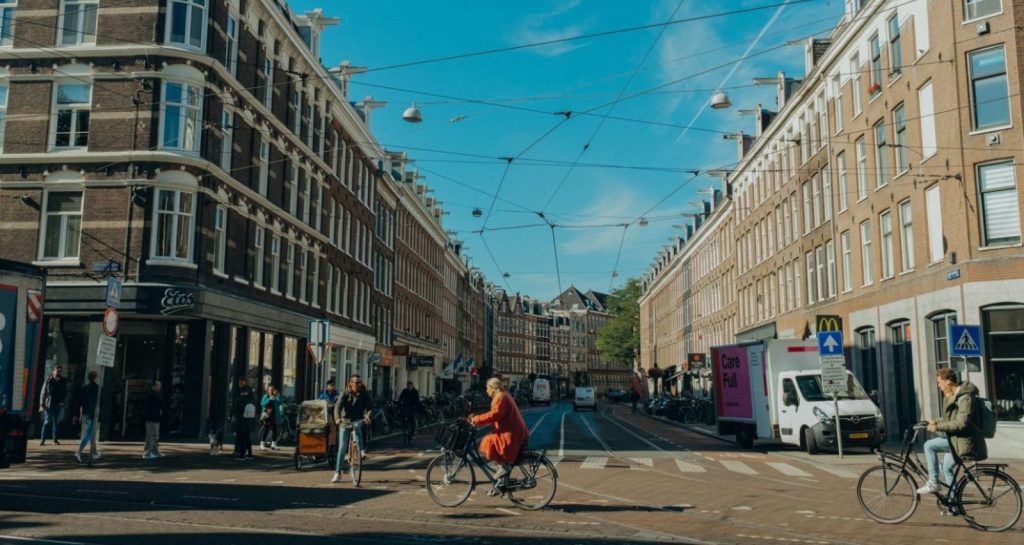Balancing growth and sustainability is one of the greatest challenges the world is facing today. The effects of climate change are increasing day by day, but so is the world population and its need for growth in all areas.
Amid the EU Green Week 2023 and World Environment Day, the Sustainable Value Hub organised a conference in Brussels on 6 June on the importance of sustainable investments in the transition to net zero, highlighting the opportunities Azerbaijan has to offer, as well as the challenges that have to be overcome.
1. Sustainable investments in Azerbaijan
“Sustainable investment is about choosing projects that focus on the long-term impact on climate. It goes one step further, enabling projects that support the green transition of their environment”, explained Ellen Wasylina, Founder and President of Trocadero Forum Institute.
Humanity can only achieve the desirable result of mitigating the consequences of climate change through solidarity and joint efforts of partnership.
H.E. Vaqif Sadıqov, Ambassador of the Republic of Azerbaijan to Belgium

“Azerbaijan is applying new strategies and initiatives on ensuring sustainability and economic prosperity. Honouring its commitments to the UN Sustainable Development Goals (STGs) is an integral part of Azerbaijan’s national policy. Several governmental programmes and action plans covering social, economic and environmental spheres have been adjusted to meet the goals and objectives of the 2030 Agenda”, said Ambassador of the Republic of Azerbaijan to Belgium Vaqif Sadıqov.
Last year, Azerbaijan ranked 50th out of 163 countries in the UN Sustainable Development Report, achieving 73.5 points out of 100 on the Sustainable Development Goals Index. The index remarked the country’s progress on the SDGs for poverty, healthcare and well-being, quality education, clean water and sanitation, sustainable cities and communities, responsible consumption and production, as well as climate action.
Maintaining this growth momentum, the Azerbaijan is now implementing a new development strategy for the post-pandemic and post-war period, covering 2021-2030. The framework encompasses five national priorities: ensuring a sustainable, but also growing, competitive economy; creating a dynamic, inclusive and social justice based society; fostering competitive human capital and modern innovations; the large-scale return of the displaced population to its homelands in the liberated territories; and guaranteeing a clean environment and green growth.
In this context, the government actively supports projects that promote the transition to a circular economy, the use of clean technologies and clean energy sources, as well as the reprocessing and cleaning of polluted areas. Ensuring a high-quality environment and green energy are among the national development priorities, the ambassador explained.
2. Connectivity
The tourism dimension is often overlooked, but sustainable development should also include sustainable, green tourism.
Klaus Jurgens, Media Relations and Strategic Communications expert

Tourism and connecting people also offer a great potential for investment, remarked Henrik Hololei, Adviser at the European Commission’s Directorate General for International Partnerships. “With 9 climatic zones, there is no other, or maybe almost no other country like Azerbaijan in the world” and with the air transport agreement between the EU and Azerbaijan significantly opening up possibilities of flying to Azerbaijan, opportunities for tourism will greatly increase.
Moreover, due to its geographical location, Azerbaijan is in any trans-Caspian route from Asia to Europe. “We are not only talking about transport connectivity here, but also energy and digital connectivity”, said Hololei. Compared to 10 years ago, the current geopolitical and economic context is bringing routes from Asia to Europe that bypass Russia to the forefront. The Middle Corridor is still facing several bottlenecks, but once these are addressed, a lot of opportunities for sustainable investment will be created and the route will reach its full potential of bringing people together, Hololei highlighted.
3. Energy transition
The climate crisis, the Covid-19 pandemic and the war in Ukraine have “put us against the wall”, forcing us to rethink how we produce and use energy, said Pierre Tardieu, Chief Policy Officer at Wind Europe. The EU needs to ensure its energy sector is more sustainable and more reliable, which can only be achieved by diversifying energy imports, where Azerbaijan plays a crucial role.
“Azerbaijan is an energy powerhouse, it has the expertise and know how not only to build more production hubs, but to also guarantee this diversification of the energy sectors, having a clear advantage in green hydrogen production as well as wind power from the Caspian Sea”, Tardieu added.

Bringing green hydrogen to the EU is one of Azerbaijan’s priorities, confirmed Elshan Abdulazimov, Energy Councillor at the Mission of the Republic of Azerbaijan to Belgium, acknowledging the challenges of such an endeavour. Due to its rich natural resources, Azerbaijan currently supplies 5% of EU’s gas as well as 5% of its oil, however, with EU’s green transition plan, Azerbaijan needs to adapt its offer. “By 2035 Azerbaijan can lose 2.5 billion euros annually if not to adapt to the EU regulations, such as the Carbon Border Adjustment Mechanism”, Abdulazimov explained.
“Türkiye has already greatly developed wind and solar energy production and can share with Azerbaijan how it can explore wider opportunities”, noted Valeria Giannotta, Scientific Director of CeSPI, highlighting the close cooperation relationship the two countries have – “we’ve heard many times that they are two states, but one nation”.













